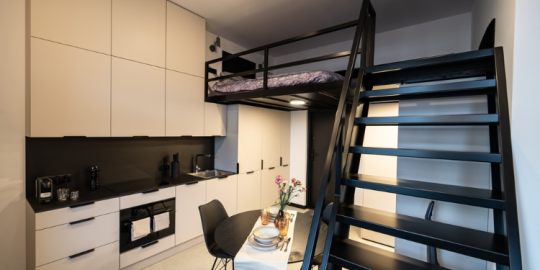What are the main challenges for Muslim expats?
Muslim expats living in non-Muslim countries might experience the famous culture shock when they wish to practice their beliefs and traditions. Like any expatriate, in addition to their efforts for integration, they often have to overcome the language barrier and loneliness and learn about a whole new system when it comes to administration, healthcare, taxes, etc. Add to these religious practices -- living in a non-Muslim country as a Muslim expat can bring anxiety and make them want to leave.
In most non-Muslim countries, no law or regulation obliges companies, businesses or any other structure to raise intercultural awareness about Ramadan; to prevent the constant presence of food (including pork) and drink (including alcohol) during the holy month for Muslims; to arrange prayer time and dedicated spaces for prayer and ablution, to arrange a specific time for breaking the fast; to allow Muslim employees to work during the lunch break so that they can leave early to break their fast; to accept leave (3 days) for Eid celebrations at the end of Ramadan. But Muslims can still observe Ramadan in a non-Muslim country.
What are the obligations of Muslim expats during Ramadan?
Muslims must observe four main practices during Ramadan:
Suhoor: Waking up before sunrise to have breakfast and then answering the call to dawn prayer (Fajr) before starting each day of fasting.
Iftar: Breaking the fast at sunset by eating a few dates and drinking water or fruit juice, then answering the call to evening prayer (Maghrib).
Traweeh: Additional daily prayer after the night prayer (Isha) and in congregation at a local mosque.
Itikaf (optional): Voluntary self-isolation, generally in a mosque, for ten days to worship.
Tips for observing Ramadan in a non-Muslim country
Here are some tips for organising your holy month of Ramadan as a Muslim expat in a non-Muslim country.
The starting date
If you are not in contact with a local mosque and you are unable to know the exact date of the beginning of the month of Ramadan in your host country, you can still observe the crescent moon. If you cannot see the moon, you can follow the start and end dates of Ramadan from Saudi Arabia or Qatar.
Questions from your non-Muslim surroundings about Ramadan
The non-Muslim people around you might ask you questions about your religion and practices, so make sure to answer them objectively and factually. This will help them better understand the changes in your habits (meals, etc.) during Ramadan. Perhaps they would like to integrate them into their own habits for greater inclusion.
The presence of food and drink
Since practising your religion is a matter of personal choice, you might want to isolate yourself from your colleagues or other students if you are enrolled in university unless you feel comfortable mingling with them during lunch or coffee breaks.
Breaking the fast during working or study hours
Do not hesitate to inform your employer or your lecturers that you are observing Ramadan. If you're lucky enough, they might make special arrangements for you to take a break at a specific time or replace your working hours at lunchtime.
Optimising meal times to finish work earlier
Here again, communication is the key to success! Talk to your manager or lectures. They might allow you to leave earlier if you make arrangements to replace your working or study hours.
Holidays for Eid celebrations
As an expat worker, you are also entitled to paid leave, depending on the amount of time you have been employed. Otherwise, you can take unpaid leave. However, agreements remain at the employer's discretion, depending on the workload.
Prayer spaces
Depending on the country you live in as an expat, you may or may not be able to pray at your workplace. However, according to Islam, you can still catch up on all your prayers in the evening when you return home. Other than that, you might choose to pray in a seated position at your workplace, for example, on a chair.
Ablution
You can do your ablutions in the morning before putting on your socks and shoes. If you need to do this again during the day, you can just run your wet hands over their upper part. Veiled women can run their wet hands over their veils. Besides, you can opt for dry ablutions.
As a Muslim expat observing Ramadan in a non-Muslim country, you might need to take a step back to think about this holy month serenely. But you shall do just fine by adapting your habits and faith to your new environment abroad.
















